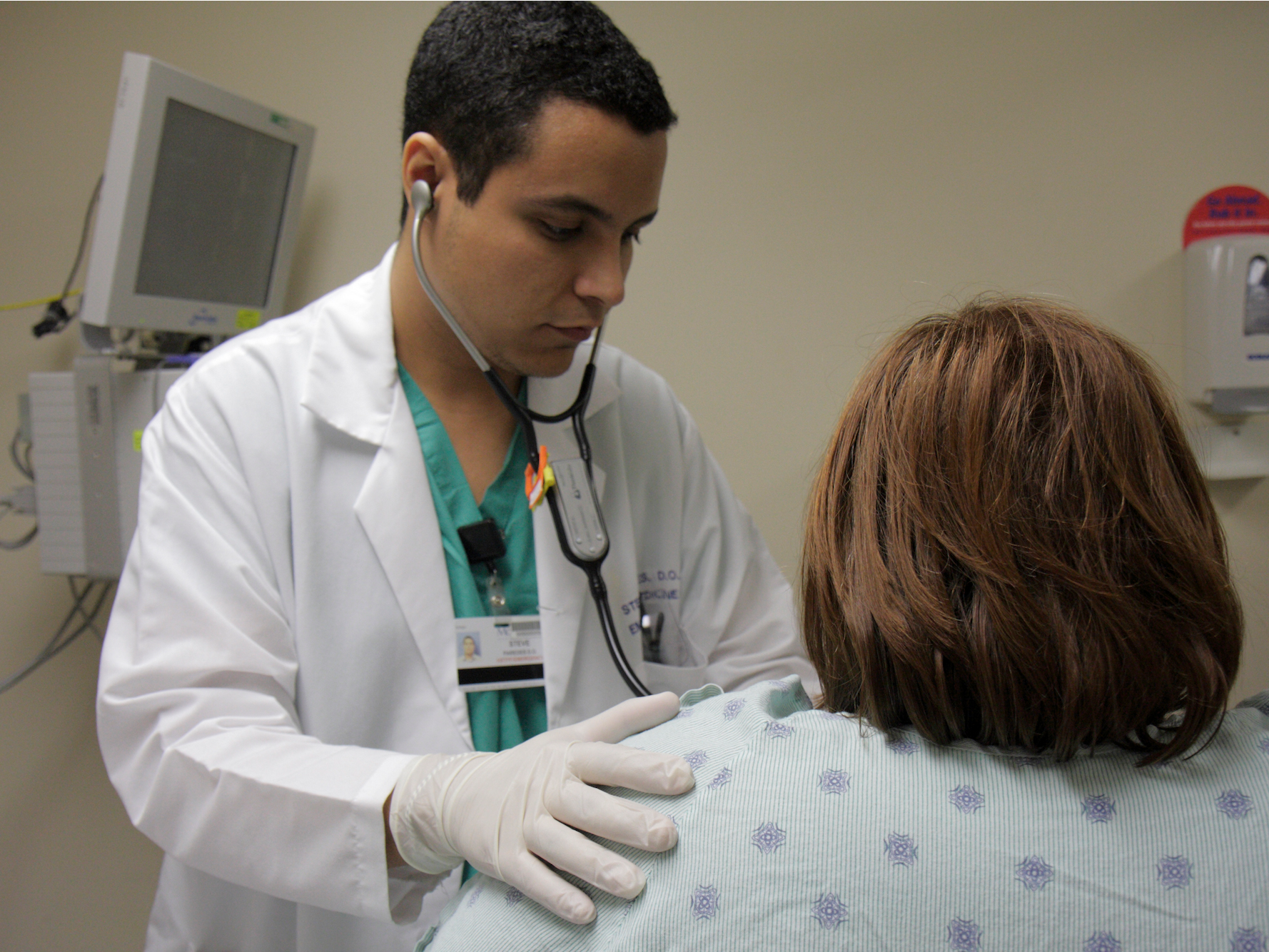- A Miami resident checked into a hospital for flu-like symptoms after a work trip to China, taking precautions in case he was sick from the novel coronavirus, according to a widely circulated Miami Herald report.
- He didn’t have a coronavirus infection, but received a notice from his insurance company that he might owe more than $3,200
- Half of American households have $4,500 or less in easily accessed checkings or savings accounts, which means many might go broke trying to afford coronavirus treatment.
- Visit Business Insider’s homepage for more stories.
Coronavirus is threatening due to its lethality – and its cost.
A Miami Herald report from Monday has widely circulated around social media, documenting Miami resident Osmel Martinez Azcue checking himself into Miami’s Jackson Memorial Hospital for flu-like symptoms after arriving back in the US from a work trip to China. Azcue was concerned that his symptoms could have come from exposure to the novel coronavirus rapidly spreading in China and elsewhere.
As reporter Ben Conarck detailed, Azcue asked to be tested for the flu before getting a CT scan to screen for coronavirus because he has a limited insurance plan.
Turns out, Azcue did have the flu. He also now has a medical bill worth thousands – $3,270 to be exact. Hospital officials told Conarck that Azcue would only need to foot $1,400 of the bill, but Azcue said he has to provide his insurer with three years of medical records proving the flu didn’t relate to a pre-existing condition.
While the $3,200 bill is the result of one case and can't necessarily be applied to everyone nationwide, comparing it to the financial state of everyday Americans paints a dire picture.
Per a SmartAsset analysis of Federal Reserve data, half of American households had $4,500 or less in checking or savings accounts as of 2016. If they were to do the same as Azcue and get tested for the flu, they may not have enough saved to cover costs. A bill of that size could wipe out their savings entirely, or at the very least, put a huge dent in them.
Americans are struggling to pay for their health
The emerging possibility of a more widespread coronavirus outbreak in the US throws fresh, urgent light on one of the most volatile intersections of American life: personal finance and healthcare.
Americans are struggling to afford medical costs. Not everyone has insurance, and even those who do, like Azcue, might still find themselves set back by thousands from a quick hospital trip. Of those ages 18 to 65 who are uninsured, 28% had trouble paying medical bills in the past year, according to a report from the US Centers for Disease Control and Prevention (CDC). That percentage drops to 18% for those with Medicare and 11% for those with private insurance.
And a Kaiser Family Foundation report found that 26% of US adults have put off or postponed getting health care because of their finances, with 21% reporting they've skipped a recommended medical test or treatment for the same reason.
The consequences are damaging: More than half of all bankruptcies are related to medical issues, according to a study in the American Journal of Public Health.
Hospital trips for suspected coronavirus infections could lead to exactly these health and money problems, while avoiding treatment for financial reasons could potentially amplify the spread of the virus.
No one knows just how costly coronavirus treatment will be
A report published Thursday by America's Health Insurance Plans (AHIP) revealed one piece of good news on the coronavirus medical cost front: The CDC is currently the only facility equipped to test for COVID-19 (the disease the virus causes) or designate other laboratories to do so, and is not billing for testing.
This means that if a patient goes to the ER or urgent care for coronavirus treatment, they wouldn't incur a charge for COVID-19 lab testing. However, a hospital stay in itself could be costly and if a patient undergoes tests for other viruses or conditions, they'd have to cover costs for the rest. How much a hospital stay would cost for a particular patient also depends on their insurance plan, if they have one.
As of Wednesday, the US Centers for Disease Control and Prevention has confirmed 60 cases of coronavirus in six states: Arizona, California, Illinois, Massachusetts, Washington, and Wisconsin.
The virus has killed nearly 2,800 people and infected more than 82,000 since December. The vast majority of cases and deaths have been in China.
This is a developing story. We will update as more concrete cost estimates come in.

